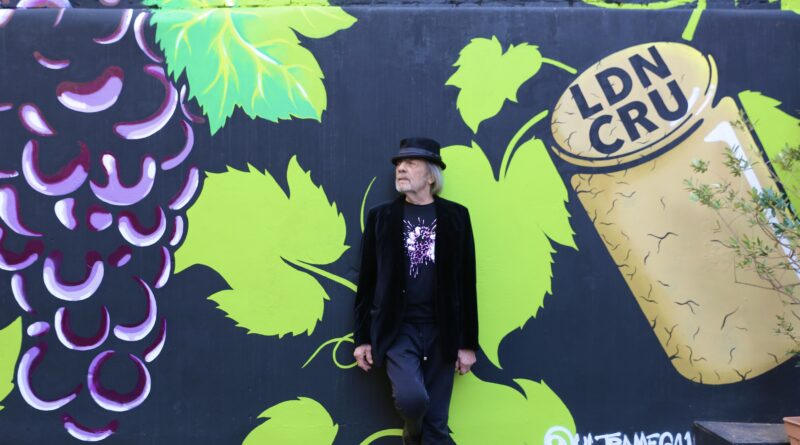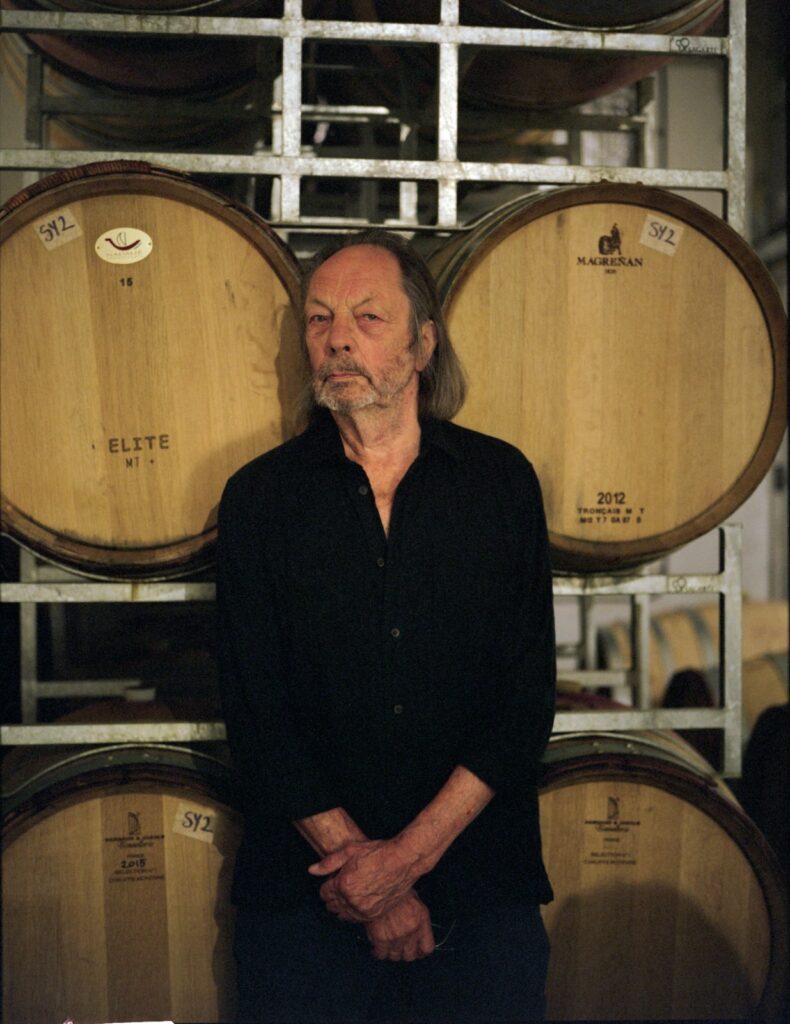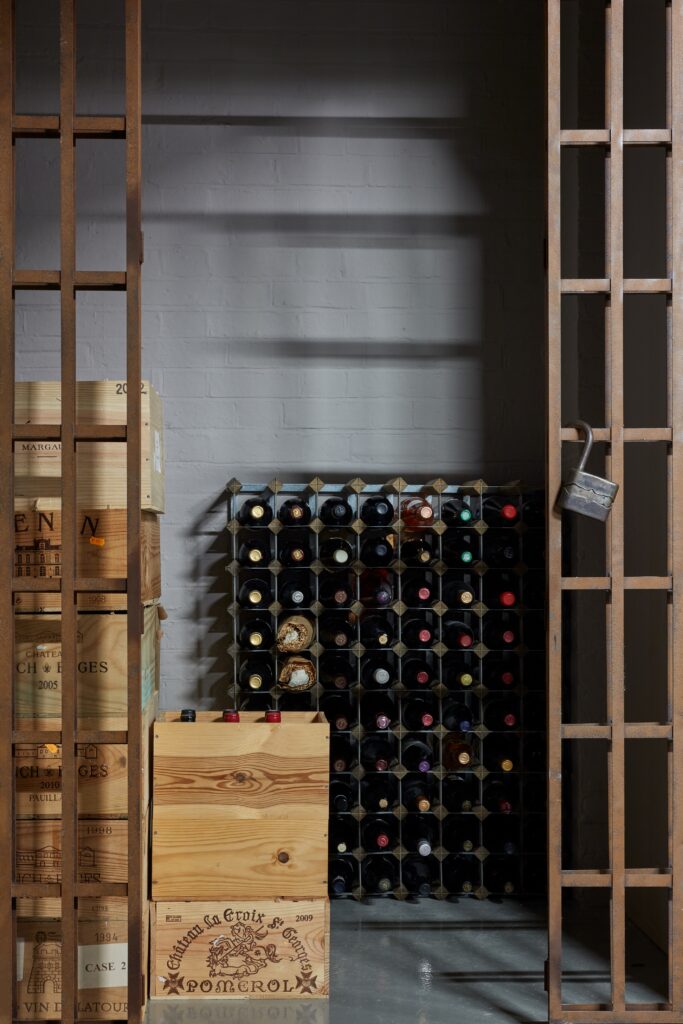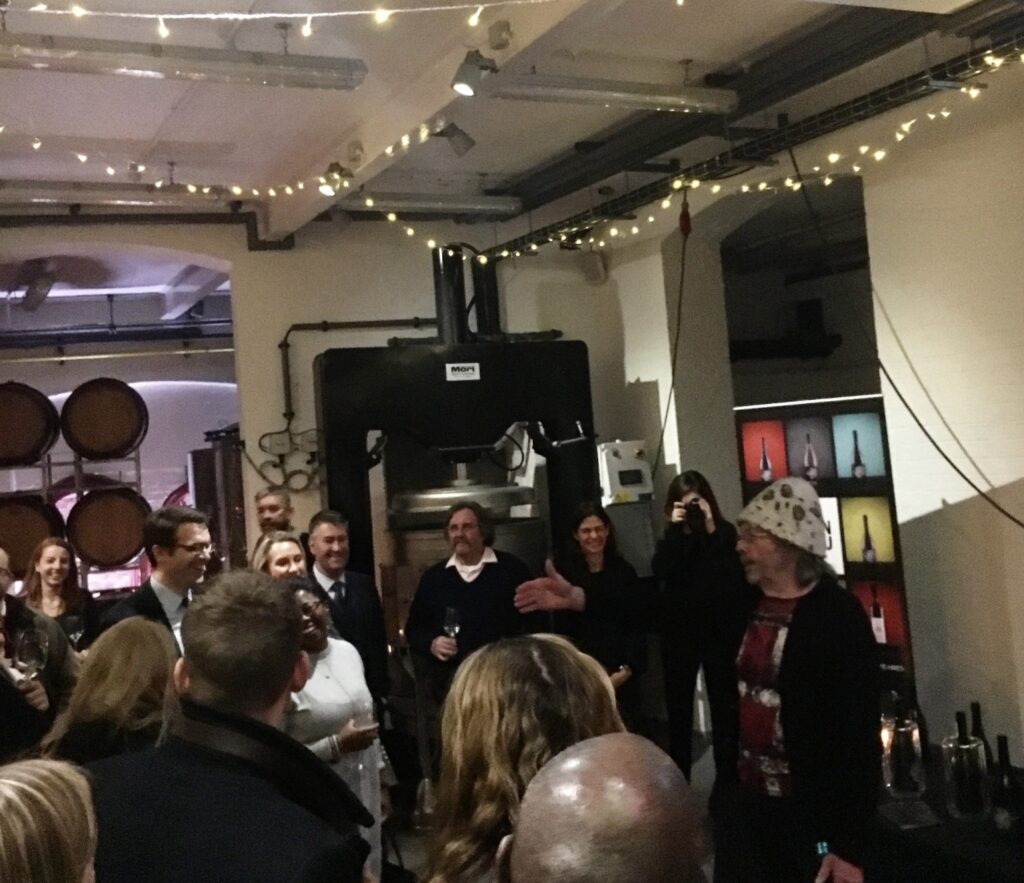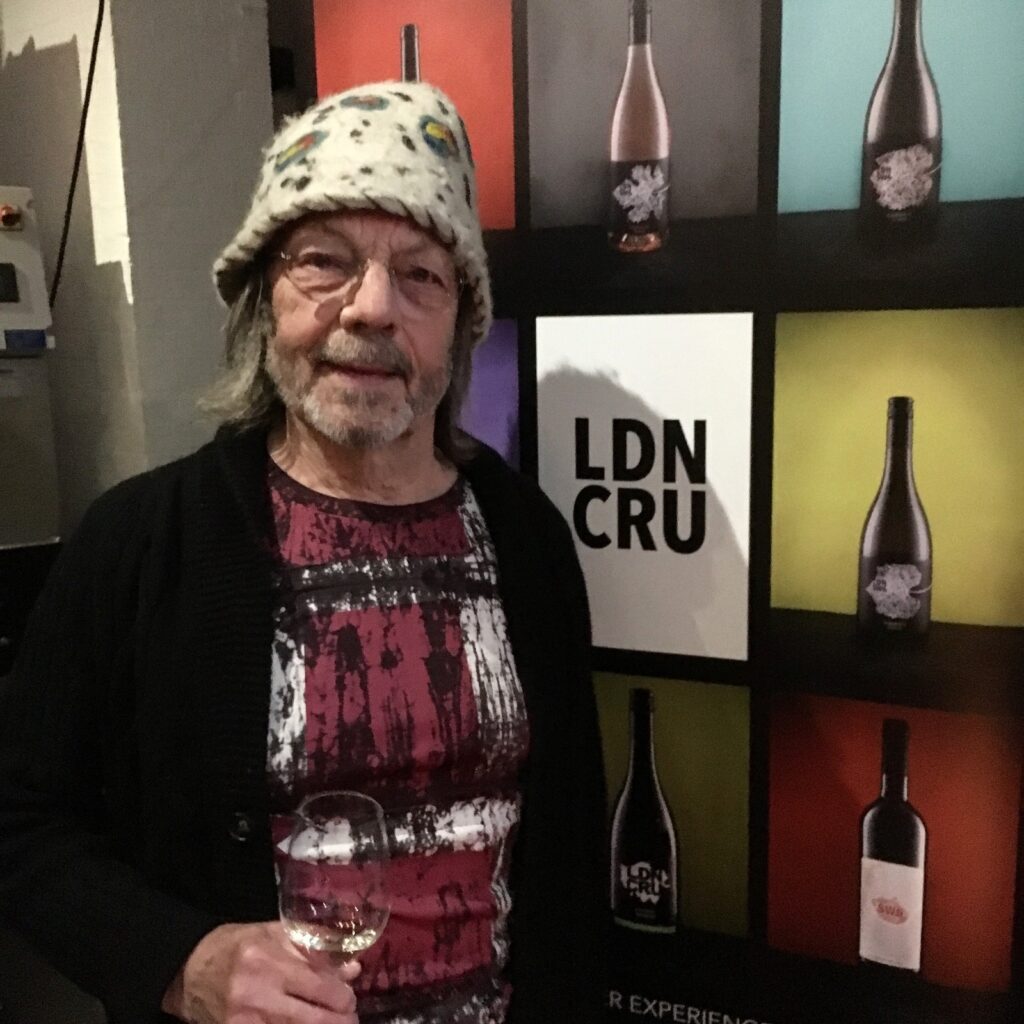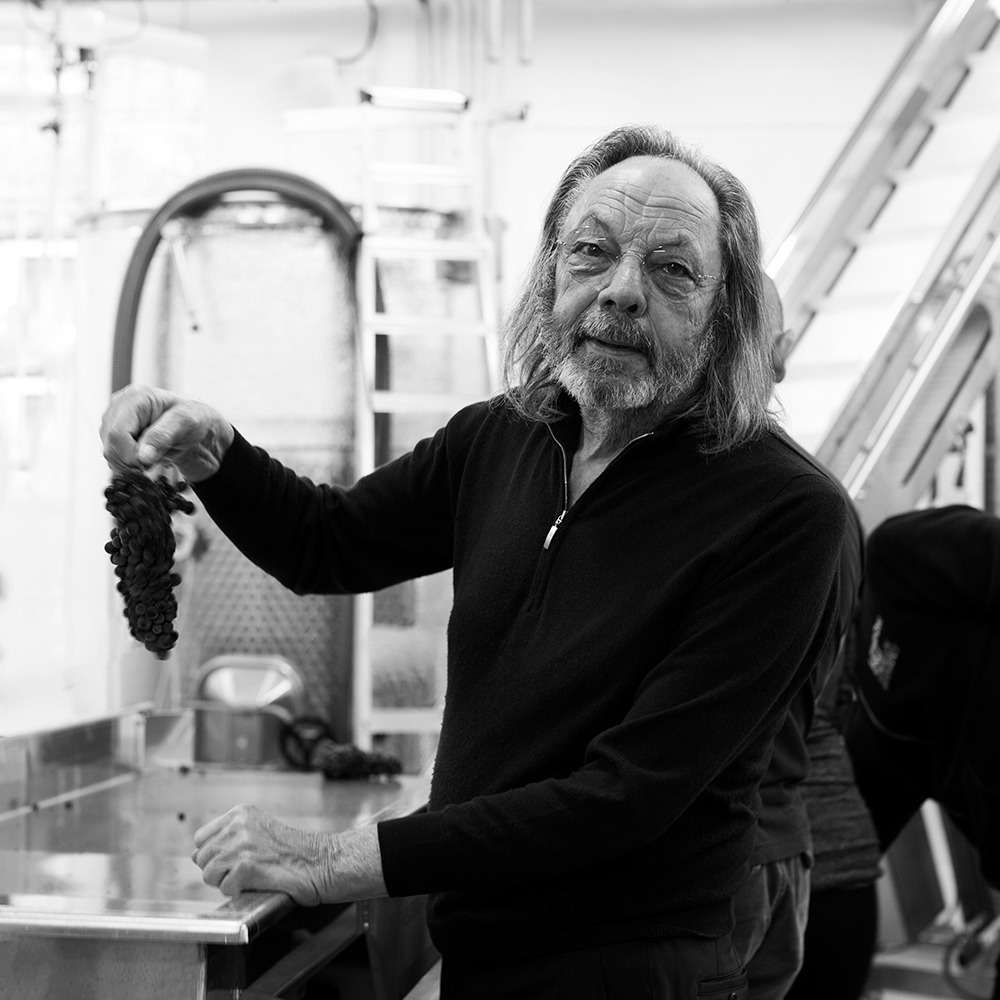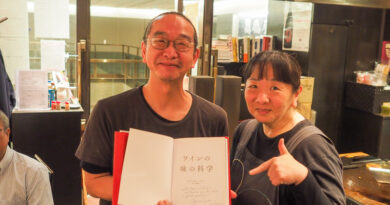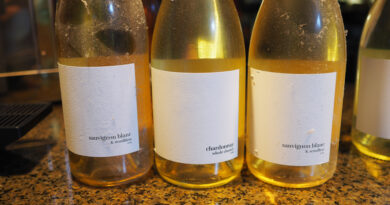The Business of English Wine (4): Cliff Roberson of Roberson Wine transports us from the basements of 60s London to upscale Manhattan, Chile and Bordeaux as he recalls 50 full years in the trade
What do David Bailey, Michael Caine and Cliff Roberson have in common? They’re all working class London boys made good. 60s Britain had huge class divisions but better wages, sexual liberation, Lady Chatterley and regional accents were in. The Abortion Act, abolition of the death penalty and decriminalisation of homosexuality marked real social change. Rampant inflation had yet to hit and the Beatles had paved the path to class mobility.
Bailey and Caine were called to the arts, Cliff Roberson to wine – and the incredible life it was to offer him. Selling wine to Warhol in Upper Manhattan, importing a million bottles of Chilean wine precisely as Pinochet left the building and living in the turret of a famed Bordeaux Chateau were all adventures on his sixty plus year career path. He has no plans to ease up yet.
Today Cliff Roberson is the owner of Roberson Wine and London Cru, the UK’s first urban winery. This year he celebrates 50 years of being his own boss and a lifetime in the wine trade. Lisse Garnett met him in the converted gin distillery that Roberson Wine calls home…
Many of us who work in wine were hit by the romance of a particular bottle or the chance to experience other cultures whilst under the influence, but Cliff Roberson is definitely not a man to ponce about calling vintages.
‘My mother was from Bow, my father was from Hackney, we had seven kids in the family. My father was an independent man, he worked for himself and that inspired me..’
Cliff is a people person, genuine and direct – he does not mince his words. He has forged deals with all kinds of characters throughout his long career.
‘You need to get on with people if you are going to do business, it sounds very corny, but business is a people thing.’
He credits the US for supplying him with the confidence he needed to succeed. He started in the trade aged fifteen after spying a job ad in a wine merchant’s window. He then spent a couple of years selling wine in London’s Soho, oft witnessing unscrupulous wine practitioners mix noxious basement brews. In 1961, aged 21 he emigrated to New York and went to work for the famed wine merchant Sherry Lehmann in uptown Manhattan. Here he met the cream of Manhattan Society and all manner of famed customers.
‘Society in America then was far more open than it was in the UK. I was given a level of responsibility I would never have obtained here. We had Salvador Dalí, Rockefeller and Warhol as regular customers. All kinds of really top people come into the store. Zero Mostel the actor who starred in Fiddler on the Roof and The Producers would chase us boys around the place laughing. New York gave me a huge sense of freedom. That was the advantage of being abroad alone without protection, you had to make your own way. It set me up – It made me approach life in a completely different way.’
After nearly three years in NYC he went to work in Bordeaux, exporting wine for Alexis Lichine and moving lock, stock and barrel to Château Lascombes in Margaux with his new wife.
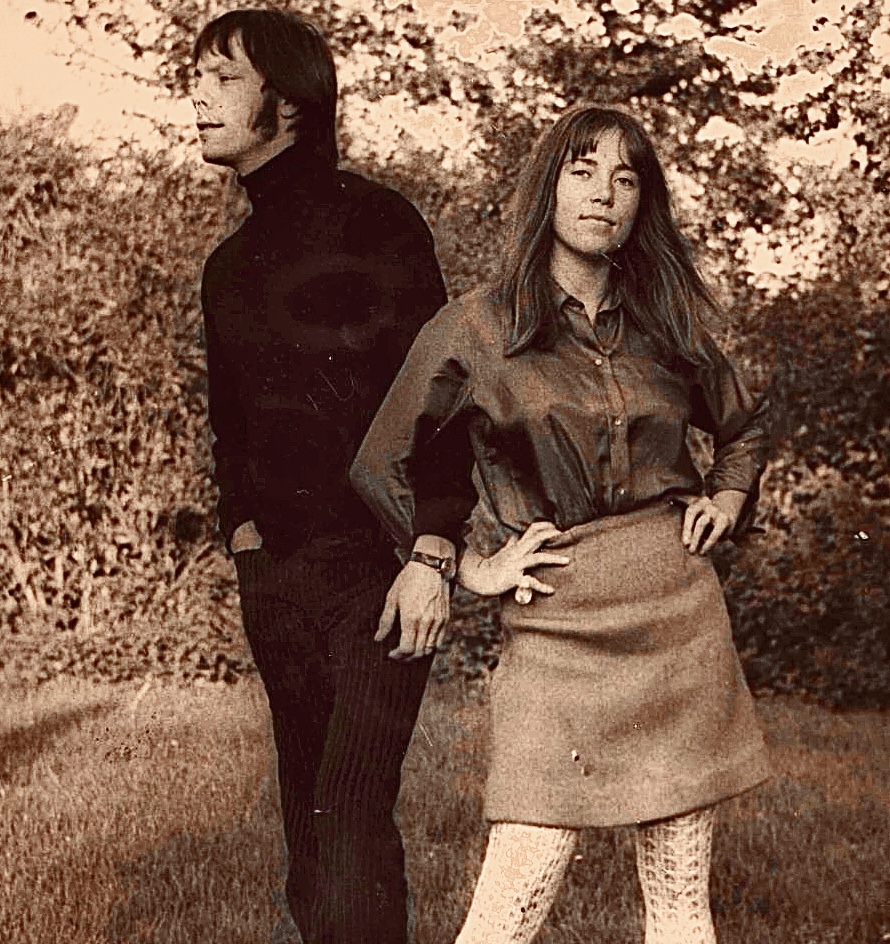
‘Château Lascombes was a huge contrast to NYC – which was absolutely teeming – a tiny village in Bordeaux was a massive flip of the coin, it was dreamlike. I’d recently got married and we lived in a turret: it was extraordinary. Chateau Palmer was around the corner, everything was steeped in wine and I was given a lot of authority by Alexis even though I was just a young man at the time. I would do a lot of entertaining – David Peppercorn was a regular guest. It was a wonderful for my confidence and I had the opportunity to learn – particularly about Bordeaux. I became quite Bordelaise in my tastes as these were the wines I became familiar with. It was a complete immersion not only into the wine business but into the culture of the place.’
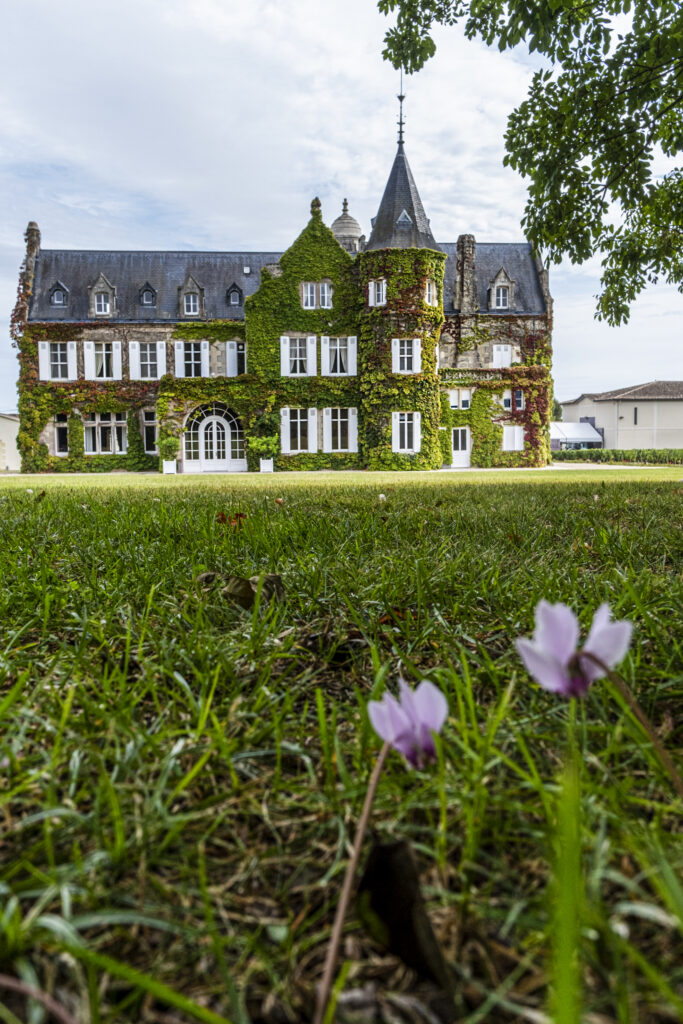
Cliff then returned to New York for a few years, still working for Alexis Lichine but on the import side of the business. In 1972 he set up Buckingham Vintners. He was 32 and he never looked back.
‘When I began working for myself it was a struggle, having no money. But I found people that I got along with and I did a good job for them. I found out that I was capable. I saw that people are only people – and that fear – together with apprehension is a problem in itself.’
He ended up buying five wine shops in prime London locations which he later sold to Nicolas. He bought his Kensington High Street store in 1991 and continued to run Buckingham Vintners – completely the opposite operation to his fine wine shop in Kensington. Buckingham was about selling large orders to supermarkets. From 1968 until 2011 he collaborated with Shenk and San Pedro, the largest winery in Chile. At peak he was selling 1.5million 12 bottle cases a year. A sizeable business.
‘That was purely by accident, like most of the big things that have happened in my career – such as seeing that advertisement in a wine merchant’s shop window. I had no intention of being a wine merchant. In this case I had a Slough office and a transporter was looking to fill his containers that were on the way back from Chile – I had shops and I had seen that people liked Chilean wine. That wine was San Pedro – Gato Nero and Gato Blanco – simple. And because Chile produces very good low-priced wines it was a classic combination – accessible and the right price. The first year we did 20k cases, it started with a pallet here and a pallet there to all the supermarkets, they found it sold – it was Sauvignon or Cabernet, a simple product and people liked it. People recognised the grape but not the country, so we kept it very simple on the label to give the customer the sense of security required to buy it even though it was something new. Familiarity and curiosity – the perfect pairing.’
Is it true you sold a million bottles in one handshake?
‘One Christmas a big supermarket group wanted to be the first outlet to order a million bottles for their Christmas Promotion. The supermarket buyer told me what they were looking for and asked, what’s the price? We tasted the wine. He looked at me, I looked at him – we shook hands and we had a deal. It sold extremely well because the wines were very commercial. That was the start of lots of supermarkets buying as much as 500,000 cases of Chilean wine annually. It was an exciting operation and a fantastic time for us.’
When did you sell Buckingham Vintners?
‘I sold the final tranche of Buckingham to Shenk in 2011, I then worked with them to bed the business in but began focusing my attention on Roberson again in 2012.’
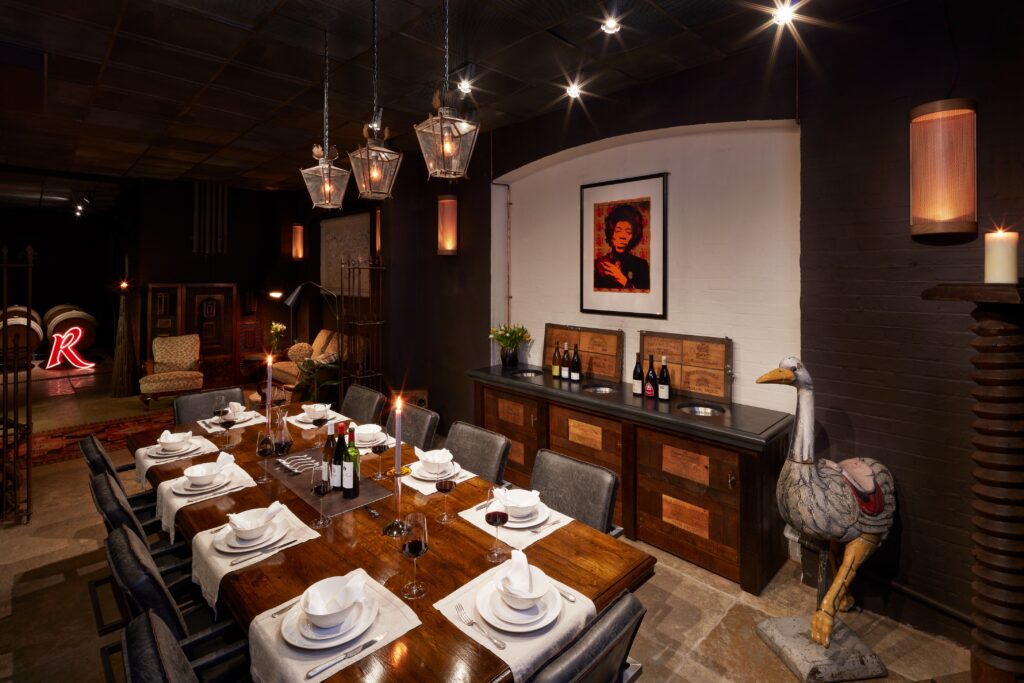
Roberson Wine is as idiosyncratic as its owner. Not only do they sell fine wine, they service the on and off trade and have an urban winery onsite in the heart of west London, a passion project Cliff started having seen similar operations in the states. An old gin distillery, it serves the diverse needs of the company well, perfect for making wine as well as holding events, tastings and parties. There are huge cavernous offices above. The maverick nature of the owner is all about the fabric of the walls. The place is reminiscent of the shop Cliff started on High Street Kensington back in the 90s – 4000 square foot of wine proffered in a space that was way ahead of its time.
‘We had a shop in Kensington high street that was my big thing. If you look at this tasting room, it’s a case in point – every detail has been thought out. The table is made from barrel staves and the environment really matters. Much like the shop in Kensington, it was cold and angular when we bought it, it had been a kitchen supply shop. So, I said to my friend, put some soul into it, that is what he did. He used a lot of wood and iron and bent them into shape. I liked that shop, I like this room, I like to like where I spend my time. The offices upstairs are great, I like being up there because it looks like my home almost. I spend a lot of time at work and I don’t want to spend it in a sterile-looking place. I don’t really like the idea of being sterile as a person either.
Roberson Wine is a far more complicated business than the shop – normally people concentrate on a particular sector of the business, but we have a fine wine department, we have an online department, on and off-trade departments and a winery. All of those are different and require different mindsets and aspects of professionalism to help them run.’
In 2013 you opened London’s first winery, London Cru – what made you do it?
‘It was more of an emotional act than anything else, I’d sold my wholesale business, I was available. I was working with some people who were very excited by the idea of making wines ourselves. We looked at various things and various ways of doing it, got a bit over excited. As you probably know we started by bringing grapes in from Europe and that was fairly fraught. We made very very good wines, commercially it was abit upside down. People think if you are making wines in London, they will be cheaper than making wines somewhere else, but it wasn’t the case because we brought grapes in refrigerated trucks from Piedmont in 24 hours from picking to processing. Now we have changed to purely indigenous grapes which makes much more sense for many many reasons. But the principle remains the same, we are interested in quality and if we can’t make exceptional wines, we won’t make any wine.’
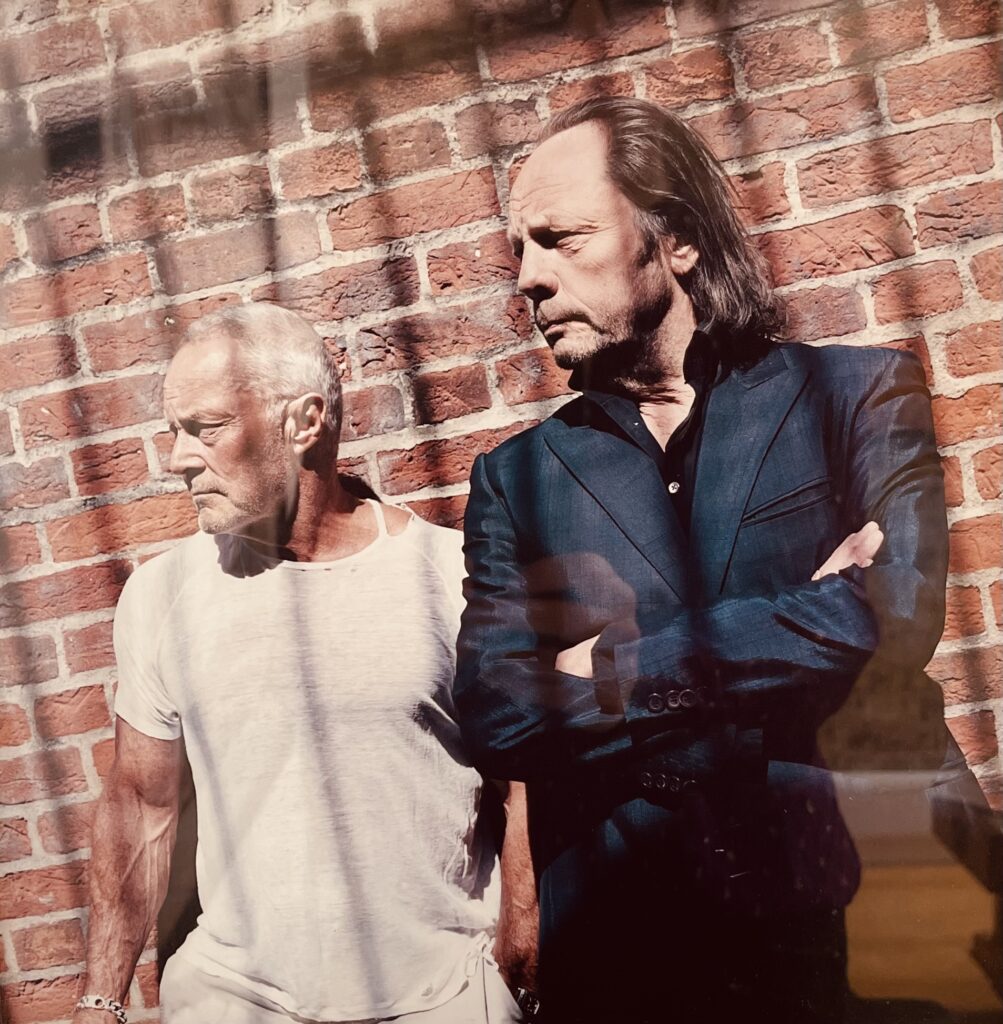
What is it that drives you Cliff?
‘Money is not that important to me; the game is far more interesting. The game is doing things, I don’t think I have any value unless I’m doing something. The value is in doing whatever it is you are doing as well as you possibly can. That gives me satisfaction and pleasure. Money is a way that you score your level of success so you cannot take it out of the equation. I love making a sale, it gives me a huge amount of pleasure and satisfaction because somebody has believed in me, they’ve trusted me, that to me is very very satisfying. Analysing yourself is quite hard. I am interested in giving people what they want even if they don’t know that they want it. I want to interest myself as well as other people, it’s much more appealing to do something that you like. London Cru is great, it may not make any money but that’s the name of the game. It’s a great thing that people can come here and look and be in a winery.’
Are there any other projects aside from wine that you have on the side to keep you ticking over?
‘I’ve bought some land in the Weald of Kent and I’ve been steadily planting trees. When I pop my clogs, I will end up with 4 and a half thousand trees – I’m still an old hippy at heart. I love trees and I love the environment. It’s the closest thing you can get to immortality – planting something so beautiful. It’s a project I love. I’m still in the game and if I get excited about something I do it.’

